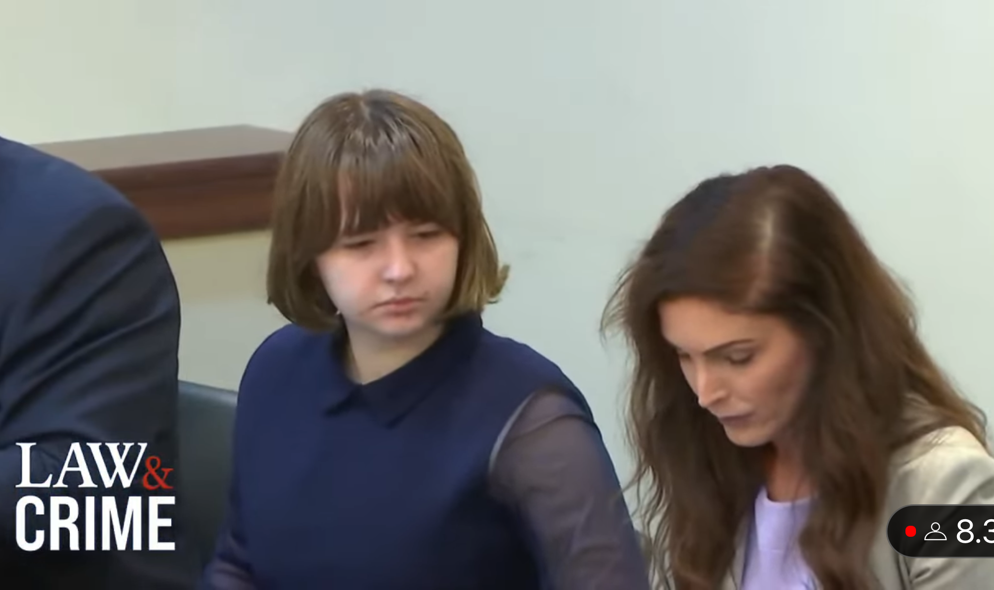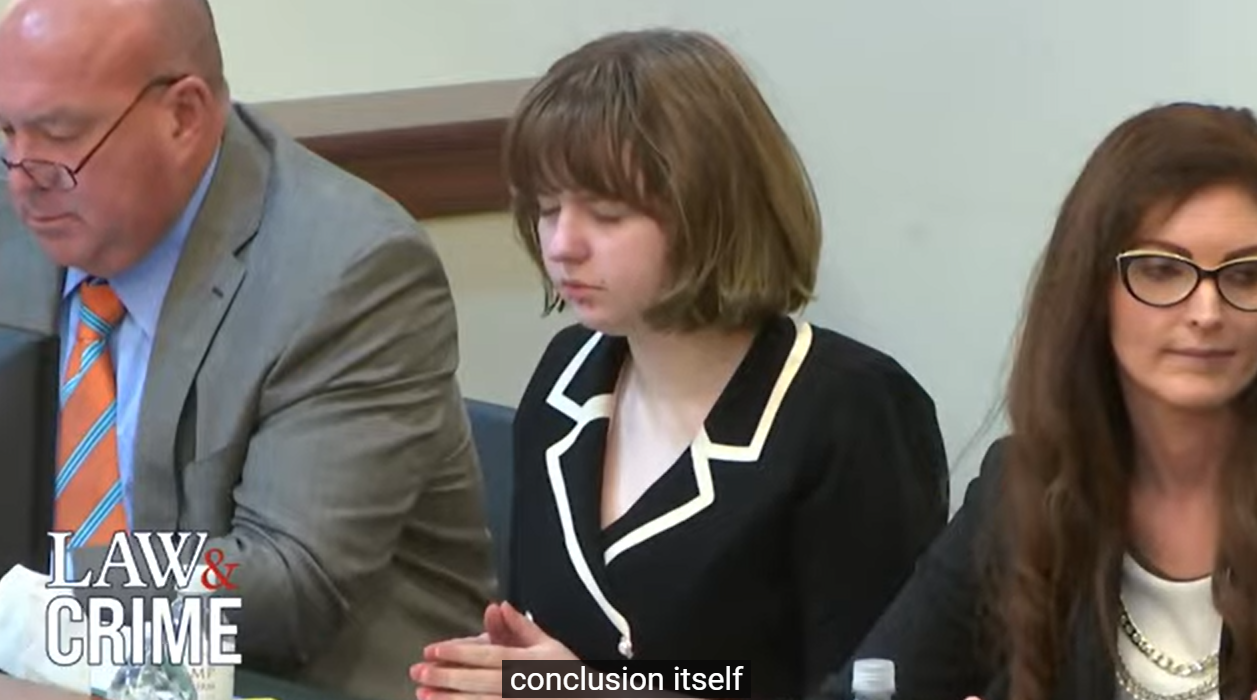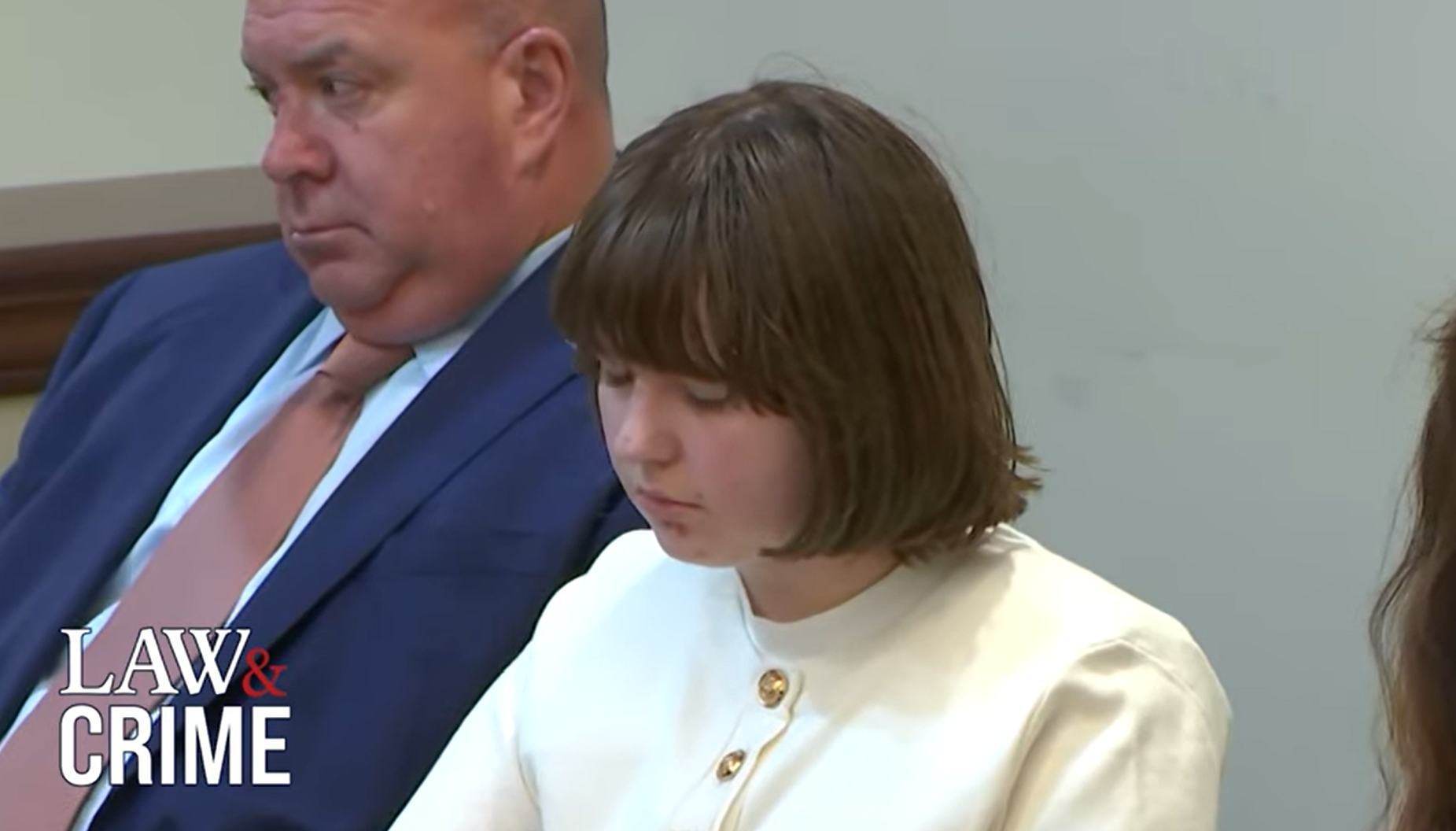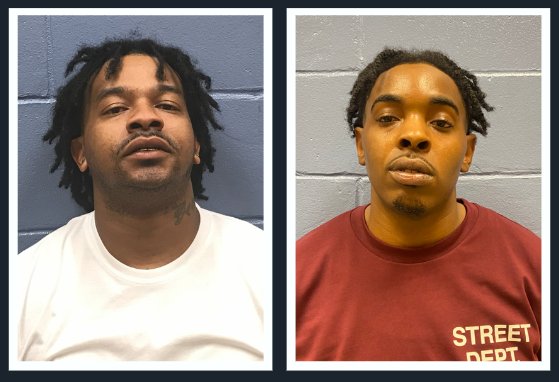All photos courtesy of Law & Crime’s live feed of the trial.
Closing arguments will be held today in the Carly Gregg trial in Rankin County.
Gregg, who was 14 at the time, is accused of shooting her mother to death and then shooting her stepfather in the shoulder.
See coverage of Day 2.
See coverage of Day 3.
Testimony over the last three days has focused on video evidence from home surveillance and police body cameras, and most of Wednesday afternoon was spent with a medical expert who said Gregg is mentally ill and that the shooting could have been caused by a change in medication a week prior.
Note: This is a chronological account as the trial goes on. Any redundancy or jumpiness in the story line reflects questions and discussions that took place in court.
THURSDAY MORNING: OLIVIA LEBER AND REBECCA KIRK
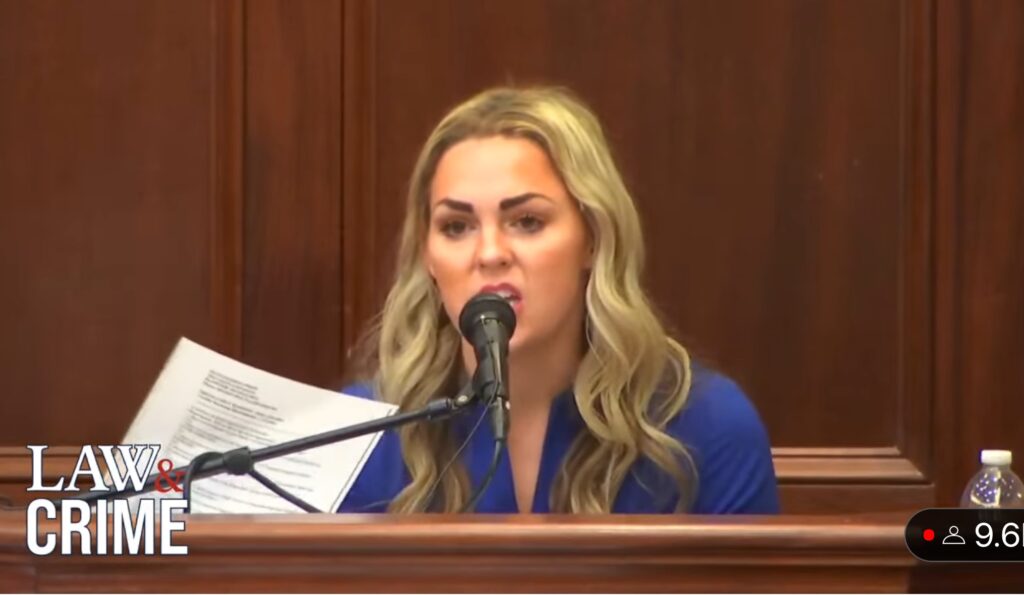
The prosecution called rebuttal witnesses Thursday morning, starting with a Olivia Leber, Psychiatric Mental Health Nurse Practitioner who had treated Carly Gregg three times between January and March at Precise Mind, a mental health clinic in Madison.
Leber said she had treated Gregg twice on telehealth and once in person during the time she was under her care. During that time she had prescribed Zoloft for Major Depressive Disorder, and when Gregg said it made her feel like a zombie, Leber changed the prescription to Lexapro one week before Ashley Smylie was killed.
Under questioning, Leber said Gregg had never claimed to hear voices, nor had she claimed suicidal or homicidal ideations. She also said neither Gregg nor her mother ever reported memory loss, dissociation, or derealization.
Lexapro, Leber said, does not cause homicidal ideations, but it does cause suicidal ideations.
Leber said Gregg’s answers to a questionnaire that she sometimes had anxiety, hyperactivity, and trouble sleeping seemed to be routine for teenagers.
On cross-examination, defense attorney Bridget Todd asked if it were possible that Gregg would have held back information if her mother was in the room, and Leber said Gregg was given the opportunity to have her appointments without her mother present.
Also called to the stand was Rebecca Kirk, a licensed professional counselor and owner of Magnolia Counseling in Madison, who saw Gregg every week for nine sessions.
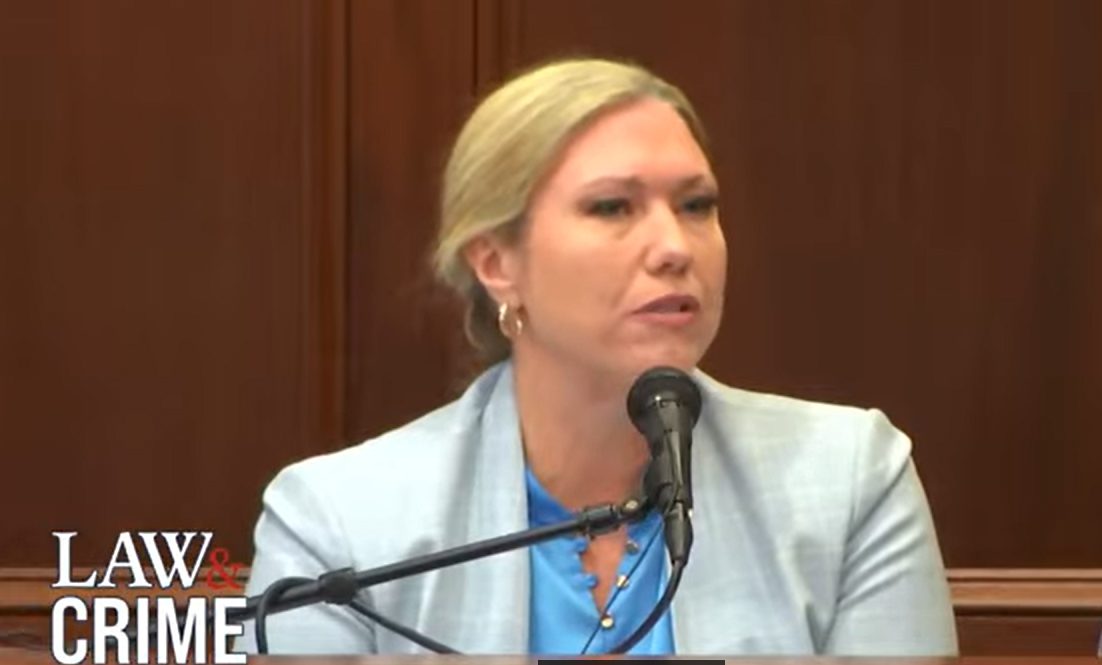
Kirk choked up when she talked about how important confidentiality is to her, and that she felt that she could be betraying a trust by testifying but that by Mississippi state law, when someone claims mental insanity, she can talk about their treatment.
She said her first notes said that Gregg wanted to feel better about herself and deal with her thoughts. The subject of cutting and taking old sleeping pills came up, but Smylie told her that those issues were done. Smylie told Kirk that there was an old iPad that had information in it that Gregg had been cutting, and that was how Smylie had found out about it.
On the form, Smylie had checked that Gregg was “easily angered,” and Kirk said that Gregg would have been asked about that and agreed with it.
Kirk said Gregg never said she was doing illegal drugs, hearing voices, having hallucinations or memory trouble. She said Gregg and Smylie had neither one ever said that Gregg was derealized or dissociated or blacked out.
Kirk said Smylie had seemed upset that Gregg was taking Melatonin.
Kirk said Gregg never reported suicidal or homicidal ideations. She did, however seem angry that her friends didn’t seem as serious about school as she was. She knew she was a little rude to her friends that she felt were not as smart as she was. Gregg knew she was losing her patience with her friends who didn’t appreciate their teachers, as well, Kirk said.
When Smylie found the iPod with the information about the cutting, that’s when Smylie took Gregg to see Leber.
Prosecutor Katherine Newman asked about some of Kirk’s notes in which she had referenced an existential crisis and Carly’s possibly being an atheist. She said Gregg never said she was an atheist, exactly, but that she had used the word “existential,” and that Kirk thought the cutting and depression seemed to coincide with Gregg’s dealing with the meaning of life.
Gregg had told Kirk that she wouldn’t be her own friend because she’s dismissive of others when she thinks they’re wrong. Kirk took that to be coming from a feeling of being different and having such a passion for learning. It seemed like she was being introspective about what kind of a person she was, Kirk said.
“Was she kind of obsessed with being great at school?” Newman said.
“She liked school a lot,” Kirk answered.
Gregg had talked to Kirk about books she was reading, including “Crime and Punishment,” by Fyodor Dostoyevsky, which is about a psychopath who is a very intelligent student and is obsessed with planning to murder a woman with a hatchet. The rest of the novel is about his processing of it. The character was then declared insane and went to prison and was unrepentant, feeling that his victim deserved it.
She read the book over Spring Break, Kirk said, and she saw her on that Monday afterward.
Kirk made notes that Gregg had thought maybe she had Aspberger’s, based on some of her sensory issues. Neither Kirk nor Smylie thought she did, though.
Kirk also discussed some possible therapy options to help Gregg with her anxiety, including attachment therapy, which explores the parent/child bond. Another kind of therapy they discussed involved boundary setting and healthy communication, Kirk said.
At another time, Gregg reported that Leber had changed her medication and she said she didn’t laugh as much, nor was she as upset when her mom was angry at her. Gregg felt some codependent feelings connected to her mother’s emotions, Kirk said. Gregg had recently gotten a haircut and told Kirk that her mother had asked her to please promise that she wasn’t “trying to be a boy.”
Kirk said in her observation, she never knew Gregg to be having an identity crisis.
On the treatment date of March 18, the last time Kirk saw her, Gregg was completely normal, Kirk said. She didn’t report any hallucinations or delusions, nor did she report memory or concentration issues at that time, Kirk said.
Kirk said she was starting to wonder if she was serving Gregg the best she could, wondering if the sessions were actually making a difference since most of their discussions were about school. She said she had planned to delve into some other things that day since she felt like they hadn’t really gone into the deep topics.
That day Gregg told her that when her mom was angry, it was hard for her to handle. Kirk said she couldn’t assume anything as to whether Smylie was any kind of abusive, so she asked questions. Gregg told her Smylie would raise her voice, sometimes slam a door, and use shorter sentences. That’s when they talked about anger and how to deal with it, Kirk said.
An additional note to Gregg’s records from May 16 was a termination of care summary note written by Kirk. She said in her last session the day before Smylie was killed, she appeared stable, that there were no suicidal or homicidal indications during that session, nor that her medications were affecting her. In that note, she also reiterated that they had talked about conflict management that day.
“I wanted to be clear that I didn’t ever observe them together other than in the waiting room and that I never saw anything that would hint at any severe danger or threat,” Kirk said.
There was never any indication of physical abuse, Kirk said, adding that she had asked a few times about those living in her home. Her biological father was abusive, but neither Ashley nor Heath Smylie ever was, according to Gregg.
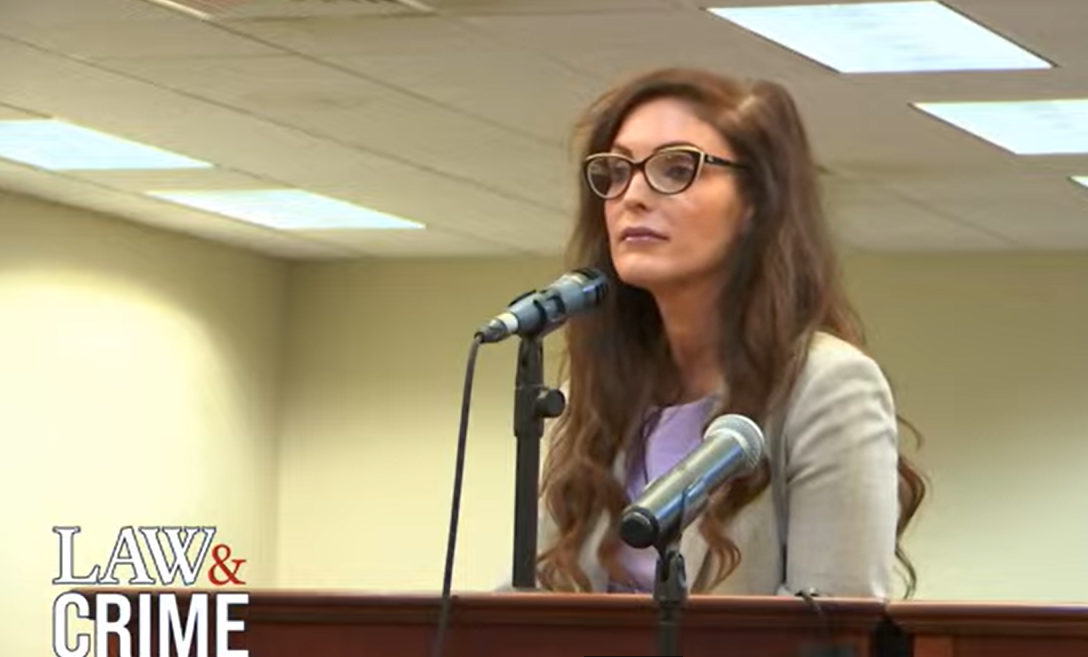
CROSS EXAMINATION OF REBECCA KIRK
On cross examination, defense attorney Bridget Todd asked about the main character and the themes in “Crime and Punishment,” asking if the book were not about the consequences of murder and how it is a horrible act.
“I don’t think the point of the book is about how murder is such a horrible act at all, I think it was about the psychological dilemma of someone who is insane,” Todd said.
Todd pointed out that the main character in “Crime and Punishment” hated his victim, then she asked if Gregg hated her mother.
“I got the impression that she had complex feelings about her mom because I tried to talk about the custody case a lot,” Kirk said. “She seemed to have a lot of trust in Ashley to take care of her and protect her.”
Kirk said she believed that Gregg loved her mother, but that she seemed as though she was not entirely sure that her mother loved her back.
Todd asked if Gregg walked on eggshells around her mother, and whether she was sensitive about her mother’s feelings, not wanting to hurt or displease or worry her.
“Is it fair to say that Carly probably knew her mom was pretty stressed out and didn’t want to add to that stress?” Todd asked.
Kirk said she would have concluded that but she can’t say that because she only knows what Gregg told her.
Todd told Kirk that Gregg never actually read “Crime and Punishment,” but Kirk said that Gregg had told her that she had read it in that session after Spring Break.
Todd also brought up a report handwritten by Smylie that said Gregg had been having intrusive thoughts, thoughts “that got stuck,” and trouble sleeping. She said Gregg had been waking up at 2 a.m. and couldn’t go back to sleep. Gregg had also had trouble with panic attacks, according to that form. Smylie had also written that Gregg had been sad and withdrawn.
Both Kirk and Leber said if Gregg had told them about the auditory hallucinations, they wouldn’t necessarily have told her mother, as they don’t have to under the law. Leber said that personally, she probably would. Kirk said she would have followed up with questions.
Kirk said she was perplexed by the fact that she couldn’t get Gregg to open up about her biological father. She didn’t like him and was glad she was with her mother, Kirk said. Todd asked if a person who’s afraid of a mental health diagnosis might lie to their therapist, and Kirk said, “Sure.”
Gregg had told Kirk about aggravation with some sounds, but Kirk said it was fairly regular aggravation.
Todd asked about Gregg’s “existential” times, and asked if they went along with bouts of depression.
“That’s the hard thing about treating Carly was that was the only emotional conflict she ever really reported,” Kirk said, following up that in the
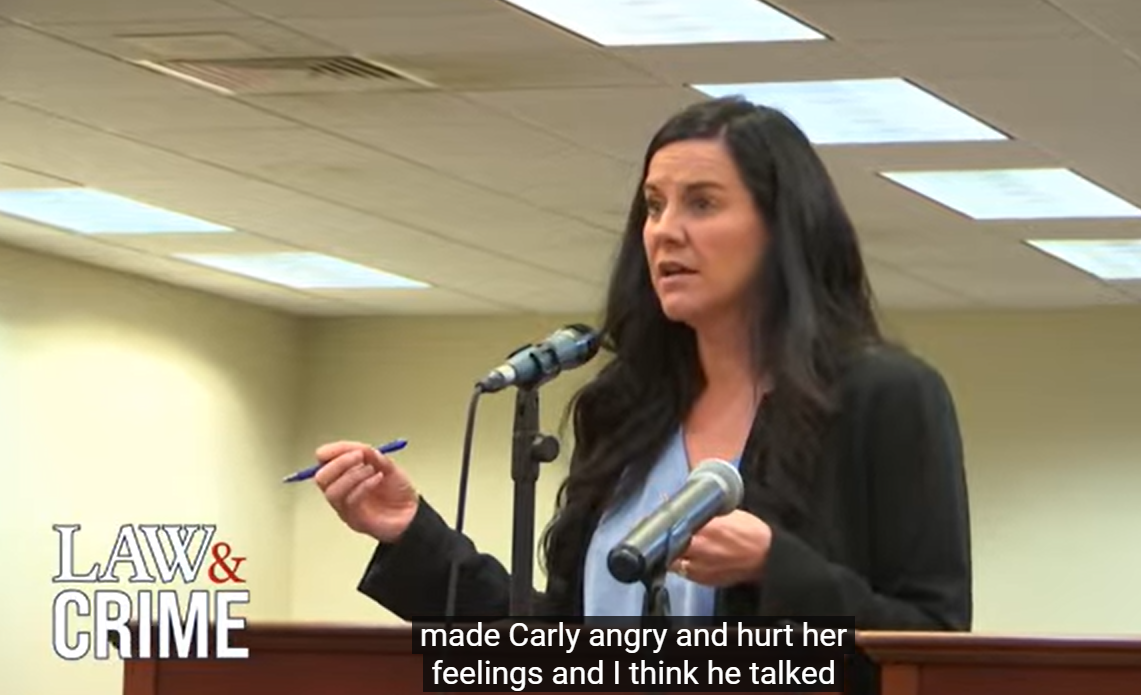
ir last session they talked about reality and life. Gregg mentioned that she thought Jehovah’s Witnesses were “a cult,” but otherwise never went into her feelings, Kirk said.
“When you heard about what happened to March 19, were you shocked?” Todd asked.
“It was the most shocking day of my life,” Kirk answered.
REDIRECT OF REBECCA KIRK
On redirect, Kirk told Newman that almost every one of her clients have anxiety and depression, and that only Gregg had gone on to kill their mother. She had also had patients who had heard voices, and none of them had killed their mother, she said.
DR. AMANDA GUGLIANO
Dr. Gugliano works at the Mississippi State Hospital as the Director of the Forensic Evaluation Service.
Forensic Evaluators are not advocates for the person they’re evaluating, Gugliano said, they’re objective, so there’s no promise it will be helpful to either side. It’s not confidential because you have to share information with both sides, and you may end up testifying.
Because there are legal issues, you can’t just rely on what the person says, Gugliano said, so a forensic evaluator will speak to others in the subject’s life to find out more information so it’s not the simple one-sided information given by the patient.
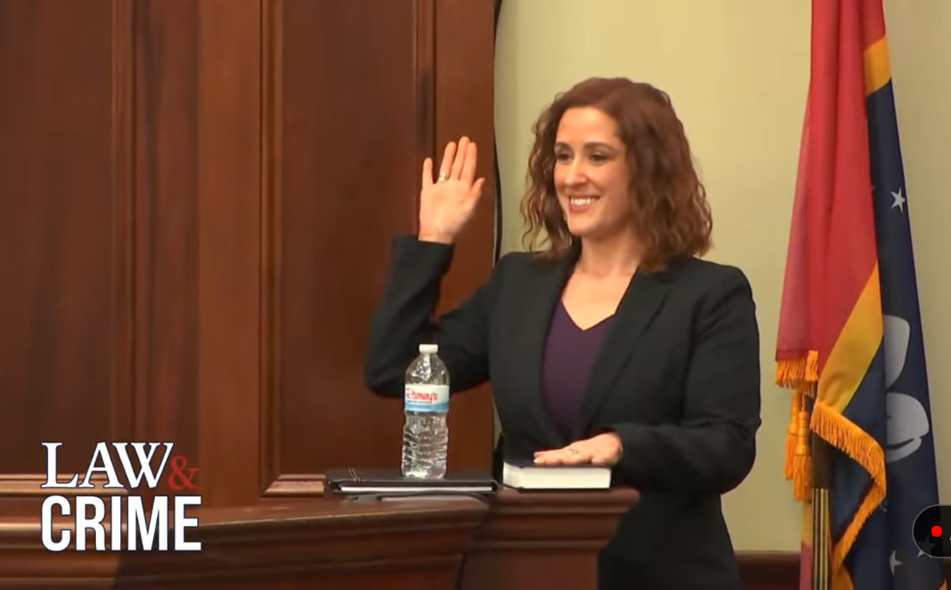
Gugliano said she had reviewed information regarding Gregg while evaluating if the teen was competent to stand trial, including her therapist and counselor, records from the jail, and discussions with both Newman and Todd. She had interviewed Gregg and tried to interview Smylie and he never returned her call. She said it’s important to talk to family members when you can because they can provide angles that need to be evaluated that may not be readily apparent.
Gugliano said she records her evaluations in order to make sure her records are as accurate as they can be. She said she interviewed Gregg, and that Todd was in the interview as well. She said that isn’t terribly common, but that it happens, and when it does, the attorney usually isn’t terribly involved in the interview.
Newman asked Gugliano if it was unusual for an attorney to be asking their client questions during the evaluation, and Gugliano said yes.
The interview was a little over four hours with a break for lunch, Gugliano said. Mostly Gugliano asked the questions and Todd interjected from time to time, she said. Todd did interject some things that were not provided in discovery, Gugliano said, including on the phone before the interview. “That’s one of the reasons that I call attorneys is to find out if they have any information that might be helpful,” Gugliano said.
Gugliano testified that Gregg told her she was smoking marijuana through a vape pen, but denied using any other illegal substance, but didn’t answer questions about prescription drugs.
“It’s a regular question that I ask during an evaluation,” she said, adding that it’s important because it can affect a person’s behavior.
“Someone’s actions or behaviors could have been due to a drug and you wouldn’t know that,” Gugliano said.
Gugliano said according to the records she had seen, Gregg had never reported marijuana, hearing voices, or lapses in time. She said that Todd had told her that Gregg was spacing out and having lapses in time, but she was never able to corroborate that with him.
“Can the use of drugs alone cause psychosis?” Newman asked, and Gugliano said it can, adding that there have been beliefs that marijuana was pretty benign, but now there can be psychosis just from marijuana use since THC is so much more potent now.
Marijuana can cause delusions, hallucinations, flattened mood, and other symptoms, she added.
Gugliano said she asked Gregg, “If you had to pick the one thing that is bothering you the most, what would it be?”
Gregg told her that she was most bothered that school was starting back and that she missed school, Gugliano said. She also discussed sadness, difficulty sleeping, having mood swings that happened minute by minute or over longer periods of time.
“I’ll be happy one minute then I’ll be desolate the next,” Gregg told Gugliano.
Gugliano said bipolar disorder doesn’t usually have those same kinds of mood swings, the manic episode has to last for a week or an extended period of time. For hypomania, it has to be at least 4 days.
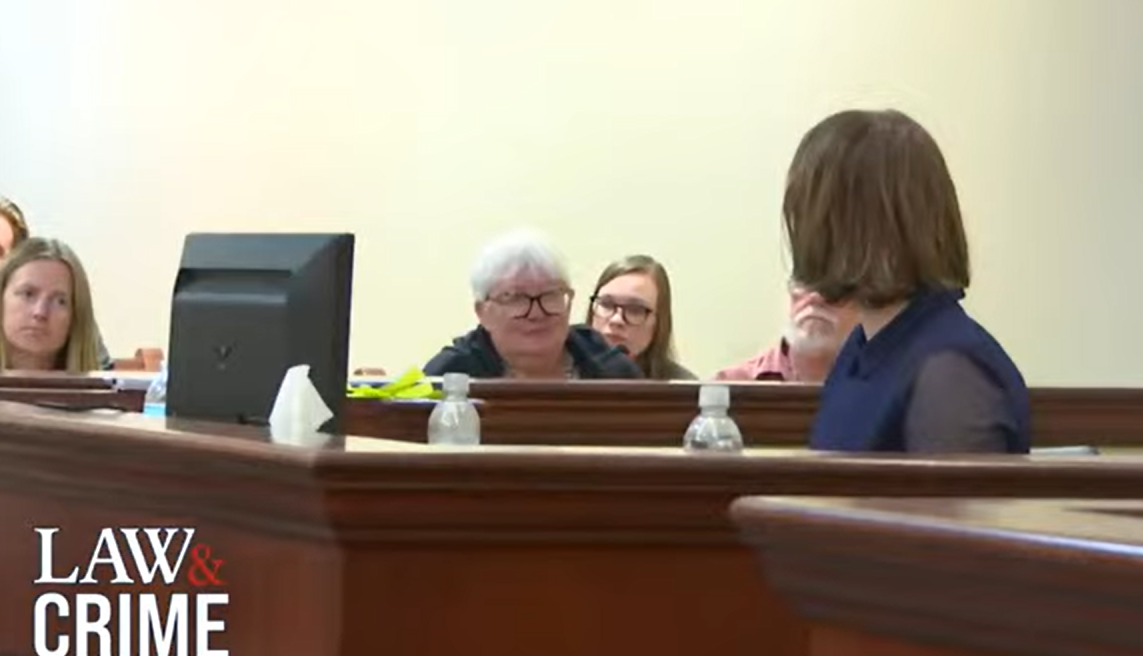
Gregg told Gugliano that she was detached, so Gugliano began asking her questions that are commonly asked to those with PTSD. She said she didn’t feel as bothered as she thought she should feel about being in jail. Todd added that Gregg had been detached, possibly because she’s in solitary confinement.
Gregg told the doctor that she felt like when her mother was angry, she would “slip away” and dissociate. She said that’s what she was doing in prison.
When Gugliano asked if she ever had blackouts, she said she thought that was what had happened during the incident in which she allegedly killed her mother. Gregg told Gugliano that sometimes when she thought about the alleged offenses, she would feel queasy. She also expressed worry that someone would jump on her in the jail, and Gugliano said that’s a normal kind of worry rather than paranoia.
Newman asked Gugliano if she had talked to Gregg about hearing voices, and the doctor said Gregg said she had been hearing a male voice since she was five or six years old, “which was unusual.” She said it was always there in the background, she said, but that she would tune it out.
Gugliano said psychotic disorders don’t usually manifest as early as five or six years old. It’s very rare for a child to have hallucinations, she said, and it could have been her own inner dialogue and she didn’t recognize it. Also, hearing the voice every day would not have been common, she said.
Gregg told Gugliano that the voice usually made snide comments about other people. Gugliano asked her if the voices ever said anything about her mom or her stepdad and she said no.
Dr. Andrew Clark had said in testimony on Wednesday that Gregg told him the voices told her to harm her mom, but she did not say that to Gugliano, she said.
Gugliano said it was her opinion that Gregg could remember relevant facts, that she remembered the month leading up to the offenses and her report was consistent with available records. There were no concerning memory lapses, Gugliano said, so she found Gregg competent to stand trial to a reasonable degree of psychological certainty.
Court is in recess until 12:20.
AFTER THE LUNCH BREAK
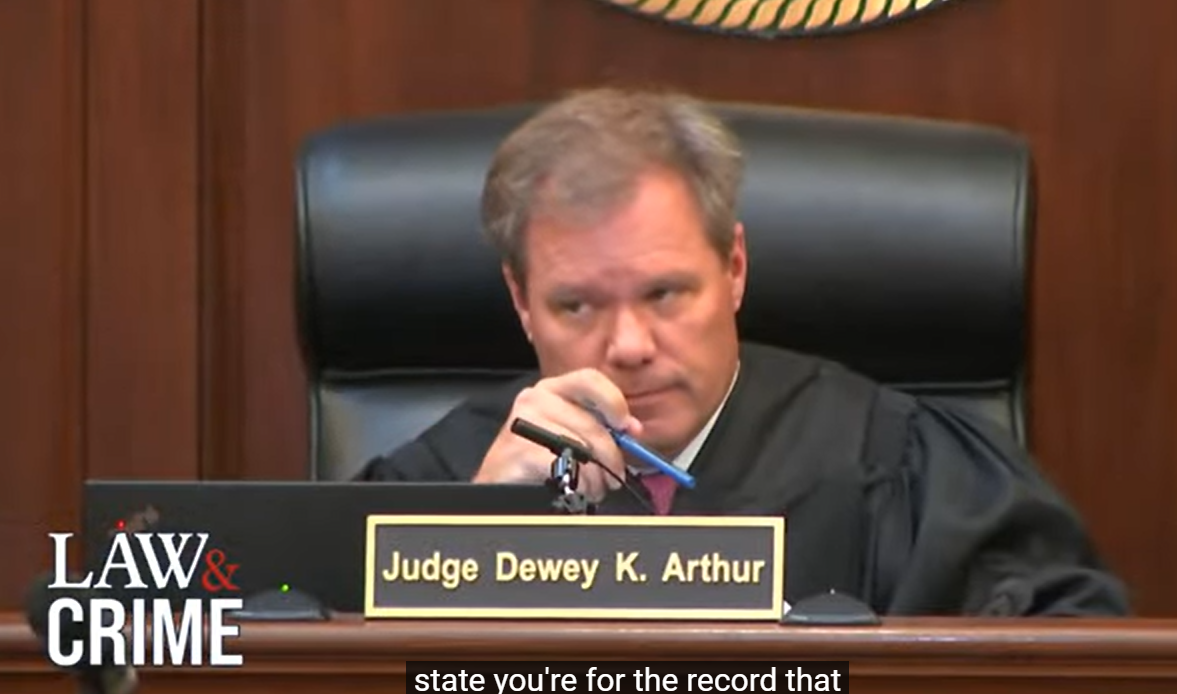
After the break, the defense came back and told the court that there were text messages on a phone owned by one of Gregg’s friends that had not been turned over to the defense by law enforcement. That friend sent the texts to the defense today, Todd said.
Judge Dewey Arther reads the texts, in which Gregg is telling a friend about a time in which she zoned out. The text is dated in November of 2023, according to what the judge said as he read it out loud.
The defense holds that it’s a failure of the State to turn over evidence since law enforcement didn’t turn it over.
Newman said she didn’t believe that the text message is exculpatory. She said the friend could have turned that information over at any time, including when he was on the stand.
On June 4, 2024, the state provided a jump drive including many things, Newman said, including a phone extraction from the friend’s phone. Newman argued that the defense not thoroughly reading the dump was not the fault of the State. Todd had signed off that she had received the information, Newman said, and Camp had emailed her asking where the texts between the kids were, and Newman said there were screenshots and messages in the phone extractions.
Newman called the act “disingenuous,” reiterating that the text took place in November and said there’s nothing about the text messages that has anything to do with the murder of Ashley Smylie, she said.
Judge Arthur asked the defense to provide evidence that the phone dump had been turned over. Newman pointed out that it bears both her signature and Todd’s.
Newman said she also has several emails between herself and the defense making sure that they had everything they needed. Arthur gave her 10 minutes to bring printed copies to the court room.
CROSS EXAMINATION OF DR. GUGLIANO
Todd asked Gugliano if she had felt that her evaluation was being hindered by anything, what would she do, and she said she would correct it. Todd brought up the mention of her interrupting in the evaluation of Carly.
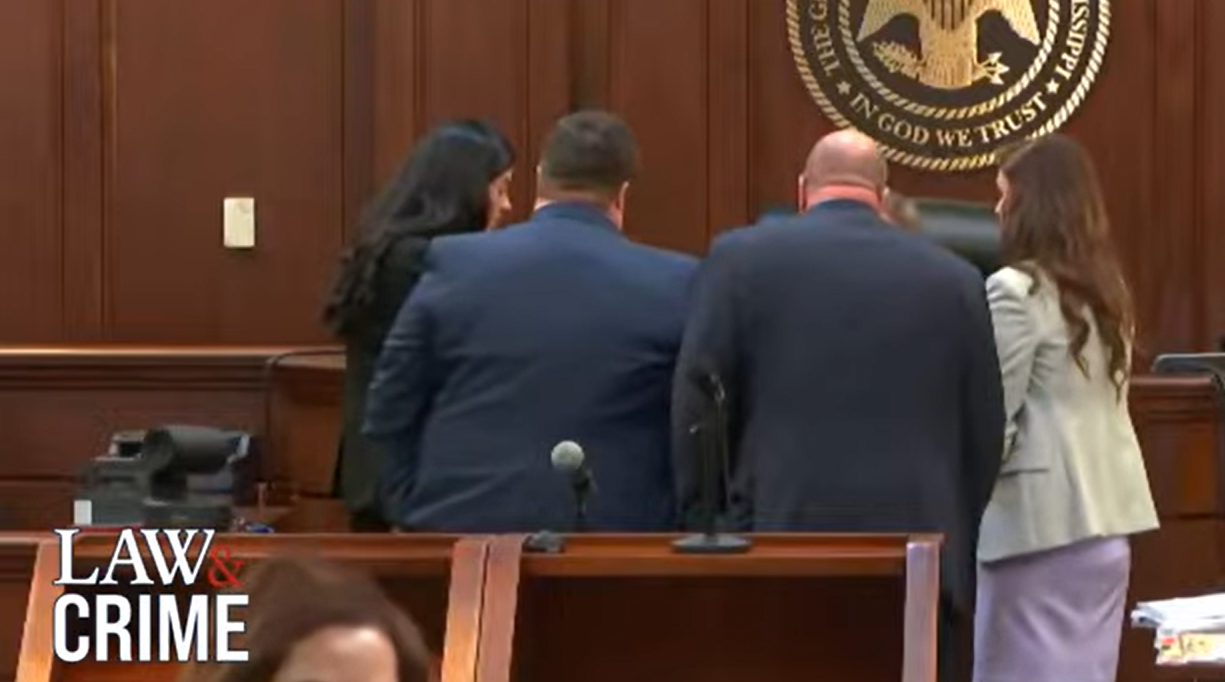
“There were a few times you interjected to tell Carly not to answer if she didn’t know or to say she didn’t know, and there were times you interjected to prompt Carly,” Gugliano said, adding that she didn’t know what Todd’s motivation was.
Todd asked Gugliano questions about her evaluation of whether Gregg was competent at the time of the incident, or competent to stand trial. She said she had recommended that a forensic psychiatrist do the evaluation since she couldn’t gauge the effect of the medications at the time.
REDIRECT OF GUGLIANO
Newman redirected by asking if Gugliano hadn’t asked Gregg about her use of prescription medications, when Gregg hadn’t answered.
Gugliano said she hadn’t tried to address whether Gregg could recall the events of the incident.
After conferring with attorneys at the bench, Arthur sent the jury back out for another 20-30 minutes so the court could address something.
RETURNING TO THE COURT AFTER THE BREAK
The state said they had proved the defense had been given the phone dump from the friend, then the defense talked about how it wasn’t working. The judge asked Todd if she knew how to use the program, and she said she did.
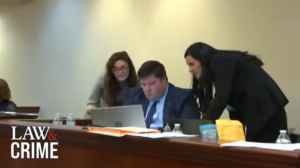
Todd took the computer over to ADA Michael Smith, who was able to show her how to find the text message.
“When you accuse a prosecutor of a Brady violation, if she had in fact committed a Brady violation, she could have been terminated, that’s a very serious allegation,” Arthur said.
The judge ruled that there was no Brady violation and told Todd that the texts actually did not impeach the prosecution, but impeached the friend and Gregg because they were talking about drug use before when Gregg said she started in January.
“If I’m being frank, this reads more like she had a crush on some boy named Anthony and there’s a talk of a whole bunch of use of taking drugs and sleeping pills,” Arthur said. “Furthermore the state has no duty to search out and discover all exculpatory evidence.”
The judge denied the defense motion to dismiss the case on a Brady violation.
DR. JASON PICKETT
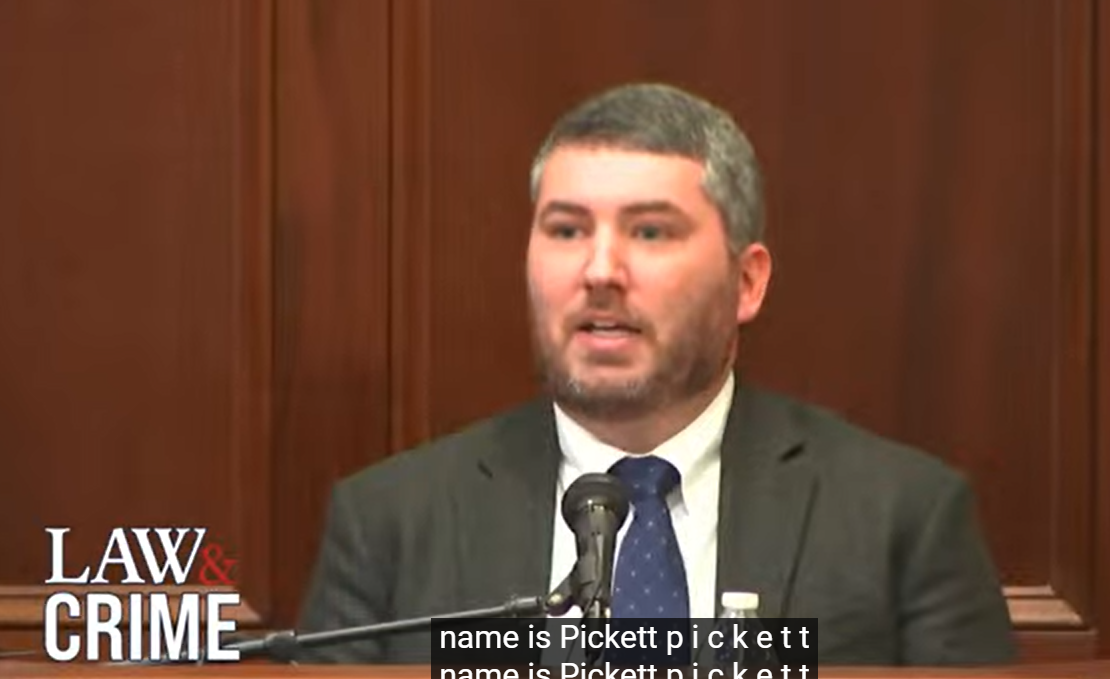
The State’s next rebuttal witness was Dr. Jason Pickett, a board certified psychiatrist at the North Mississippi State Hospital, an emergency physician, and forensic psychiatrist.
Pickett explained that there are three prongs to sanity under Mississippi law: Do they have a base mental illness? Did the individual understand the nature and the quality of what they were doing? Did they understand the wrongfulness?
To illustrate understanding the nature and quality of the act, he used the example of someone who thinks they’re squeezing a lemon when actually they’re choking someone to death. For understanding the wrongfulness, in the state of Mississippi a subject just needs to know that it’s against the law.
Pickett said he met with Gregg and Todd for about 4 and a half hours. He said after that interview, his extensive review of discovery, and his expertise, he formulated the opinion that Gregg does not meet Mississippi’s standard for insanity at the time of the offense, and that she knew the nature, quality, and wrongfulness of her actions on that day.
Pickett said he saw the garage, the dining room, and the body camera video as he evaluated the situation.
Pickett also said that Todd was present during his evaluation of Gregg. At the beginning of the evaluation, Todd said there were things that Gregg wouldn’t want to talk about so she might have to prompt her.
“As the evaluation went on, though, it seemed to be more than just simple prompting, it seemed very leading, close ended questions, leading, redirecting the conversation at specific times,” he said, adding that he listed examples of that in his report.
“It seemed like I was being led somewhere in some of the examples,” he said. “I really don’t want to speculate as to why a defense attorney would interject so much.”
It felt calculated, Pickett said, adding that most patients don’t need prompting. He said people who are dealing with hallucinations and dissociative spells, they can speak for themselves on what they’re going through. He said he wasn’t trying to pick on Todd, but he simply noted it for his report.
Pickett said there’s a lot of mention from Gregg’s friends about drug use, allowing that it could be hearsay, but “there was a lot of it, which made me think there could be more involved here with substances.” It seemed that drugs were the trigger for the conversation with Smylie on the 19th, he said.
There was a drug screen that was obtained while Gregg was detained, Pickett said, and tested positive for cannabinoids.
Newman gave Pickett a journal of Gregg’s, and asked if he had read it. He said he tries to read journals in context to find out if the writings are genuine or theatrical. One entry talked about water, fire, earth, air, and Carly wrote that she chose fire because it is “powerful, beautiful, and deadly.” Pickett said that appears to him to be what Gregg wanted to be herself.
He read the first page of the journal where it said, “I know one of y’all will read this journal” eventually, and pointed out that she seems to be writing to an audience. Is this a journal full of thoughts, he asked, or a budding author who is writing theatrical accounts. Then he pointed out that when she wrote about a particular movie, her favorite part was the war crimes and death, then she wrote about Harley Quinn and how she’s crazed and psychotic and commits crime.
In a place where she had stabbed a hole in the journal, she wrote about stabbing it like it was Tom Riddle, a character from Harry Potter who turns in to Voldemort.
She wrote 10 tenets in the journal, he said, one of which was that it’s okay to be evil, and another that said, “There is no God.” Heaven and hell are fake, love is important, you don’t need family, writing your own destiny, sometimes you must jump into the dark to truly see the light, death is inevitable, were other entries in the list.
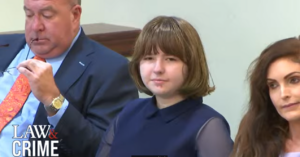
On March 12, Pickett said she mentions enjoying books about crazy people and says she had a psychotic break, and detailed speaking to one of the alleged voices in her head. “My particular friends and I were screaming quite bloodthirstily and ravenously.”
After the iPod that had been used as a burner phone had been found, Gregg wrote that she was relieved the dishonesty was over with, Pickett said.
Some of her text messages were also concerning, he said. One said, “You don’t understand how f-ing psycho I was that day. I almost murdered my parents.”
Pickett said he took great care to go through all her texts and writings and some seems to be to entertain readers, and some is very concerning.
Newman asked if Gregg had written at all about gaslighting. Pickett said there were instructions on gaslighting in some of her documents, and it ended with, “Take advantage, happy hurting.”
In another writing, Gregg said that she had a really good dream and she hopes that she would have another one, and then asked if she should write her dreams down. In April, she had written about having depression and anger issues. “I think she used the word rage,” Pickett said.
In one of her notebooks, Gregg wrote, “Life’s greatest illusion: Innocence.”
The text messages at the time of the offense are a window into her mind, Pickett said.
Gregg’s responses to some of the questions that Pickett would ask seemed like a textbook answer, he said.
“Sometimes people who may not actually have a diagnosis will have trouble going beyond the textbook cliche answers,” he said. “But when I see people who suffer from legitimate schizophrenia or dissociative disorder, they usually can describe these things vividly to me, and sometimes I see these things objectively. They can’t hide it.”
Pickett said part of the interview process is to see if a suspect is able to have a linear and logical conversation. Reality-based is not delusional, he said, so someone who is psychotic may come in with delusions like that the FBI is after them because of a gas can they saw. They might talk about Revelations and horses and stars, he said. “When you see it, it’s pretty obvious.”
Dr. Clark had described a manic state and a hypomanic state, Newman said, and asked Pickett if it seemed that Gregg was having a manic state.
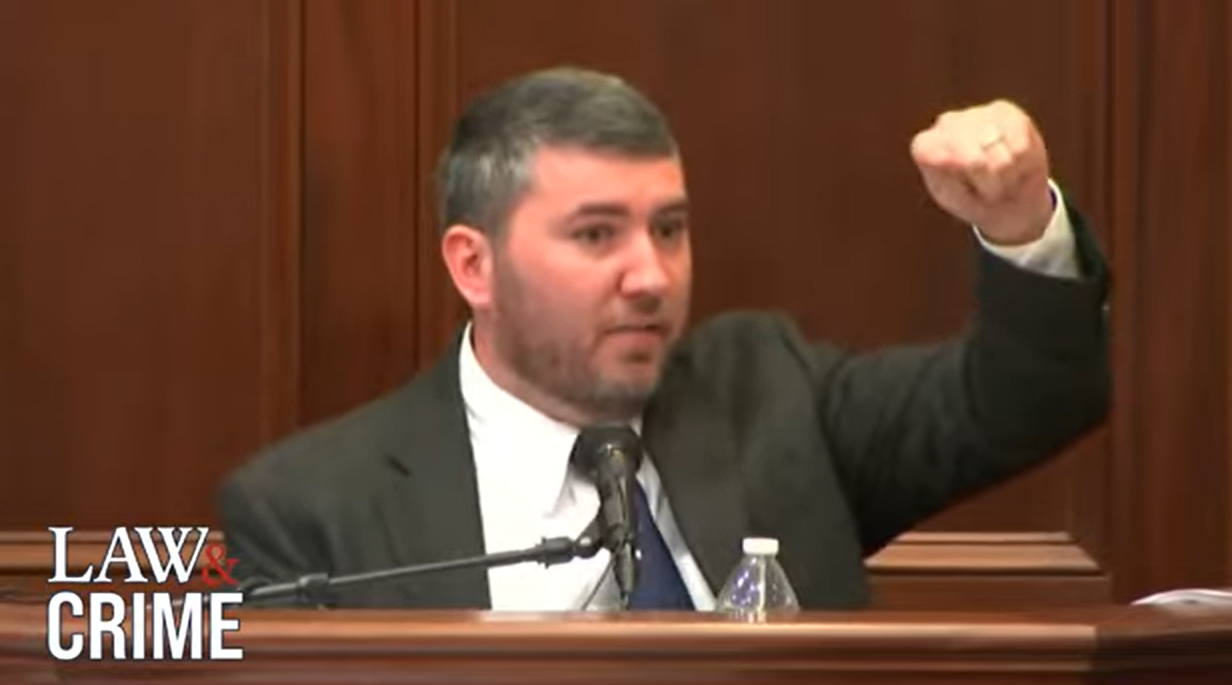
“Not during my examination,” Pickett said. He said he had looked at therapy notes dating back to 2015 and hadn’t seen any mention of any of those things that are consistent with psychosis.
There were also medical records from UMMC from when she was around 11, he said, and there was no mention of any of those things there either.
Pickett said he had also looked at medical reports about Gregg’s father, Kevin Gregg, and that sometimes heavy drug use can cause characteristics that seem like bipolar disorder. He quoted tweets from Kevin Gregg detailing different kinds of drugs, saying that they were good. There were almost 50 tweets, telling Obama to legalize marijuana, saying to bomb the Middle East with marijuana.
Ashley had written about her problems with Kevin, Pickett said, detailing his drug abuse and how he was verbally, emotionally and sometimes physically abusive toward her and Carly.
Gregg had told him that she knew what Benzodiazepine was because of her father and told him of some of his drug abuse. Pickett said the vast amount of information on his drug use made him very skeptical of Kevin Gregg’s bipolar diagnosis, especially since his doctor had only seen him three times for a complete total of one hour. The doctor had prescribed him three controlled substances including Adderall, Pickett said.
“If you have bipolar disorder, I would hesitate to put you on Adderall, because if anything is going to put you in a manic state, Adderall is going to do it before an SSRI,” Pickett said.
After some discussion of Bipolar Disorder 2, Pickett said he did not agree with Dr. Clark’s diagnosis of Gregg as having Bipolar 2.
“My opinion is that some of his opinion of diagnosing Carly with Bipolar disorder is that he took Dr. Hardy’s notes at face value,” Pickett said. Dr. Hardy is Kevin Gregg’s doctor.
“If Kevin doesn’t have legitimate bipolar disorder, then Carly, it’s a lot less likely that she does,” Pickett said. Looking back at all Gregg’s doctors’ records with no mention of psychotic-type behavior, Pickett said, “I highly doubt and do not believe that Carly has bipolar disorder.”
There was also no mention of auditory hallucinations with the exception of Gregg’s journal entry, Pickett said, adding that he was skeptical of that because it was theatrical and making light of it, where people who tend to have those things would never describe it as “quite silly,” because, as he said, “they are haunted by it.”
Pickett also agreed that people who hear voices almost never hear them as early as five or six years old as Gregg claimed, nor do they usually hear them all day every day. He quoted Gregg as saying in an interview that she doesn’t listen to the voices. “No, it’s a voice in your head, you don’t listen to that,” Picket quoted Gregg as saying.
Pickett also discussed Gregg’s claims that she has extreme mood swings based on things that happen in her life and he said her answer that she had the mood swings sometimes minute to minute, hour to hour, up and down, which Pickett says “is not consistent with bipolar disorder.”
Gregg’s prior medical professionals had all said she had an adjustment disorder, which he said would be much different than bipolar disorder, he said. He also said in reference to the prior discussion of an eating disorder that it wouldn’t have caused her to commit murder.
Pickett said when someone has a dissociative state and hurting someone is almost always accidental, but to go and retrieve a gun from a particular place requires memory and hand-eye coordination and planning.
Malingered amnesia is one of the most common kinds of amnesia, and most commonly happens during homicides, Pickett said, reading from a book he used for research on the case.
“In my understanding at a basic level, there are some disorders that you dissociate with no prompt,” he said, adding that Ashley and Heath had both mentioned some zoning out and needing a calendar to remember things.
“If there were some substances that she may have been abusing, it’s hard to say was that related to those substances,” Pickett said.
Pickett said if Gregg were legitimately having dissociative spells, they would have been closer in proximity to the traumas she experienced as a child. “They’re not pleasant and they’re scary, you can’t control your body,” Pickett said, adding that it would have been hard for Gregg to have hid that from her mother.
The story about not remembering anything from letting the dogs out to getting out of the sewer was suspect as well, Pickett said. It’s very uncommon to lose a block of time like that, he said.
Gregg’s story that she felt queasy thinking about some of the incidents also indicates malingering, Pickett said, and wouldn’t track with someone who blacked out completely.
“Malingering” is lying or exaggerating symptoms for a secondary gain, Pickett said.
Pickett said he had asked Gregg if she’d had any dissociative episodes since her mother died, and she said she was having one as the interview was going on. She also said she had one during a court hearing and was backed up by Todd on that, Pickett said. She also alleged that she had them every time her mother got mad.
“I think we need to distinguish between zoning out and not paying attention, which we all do, and dissociative spells,” Pickett said.


